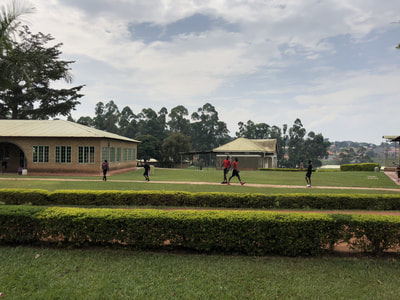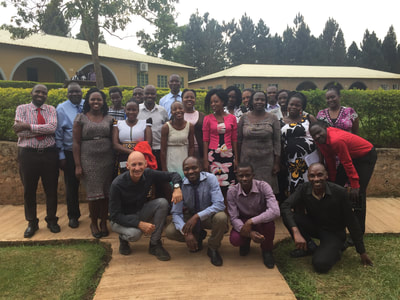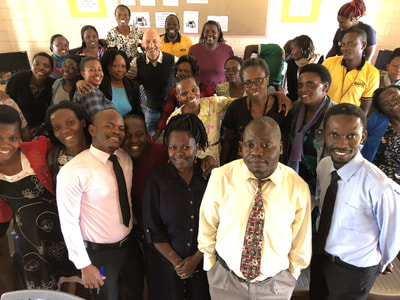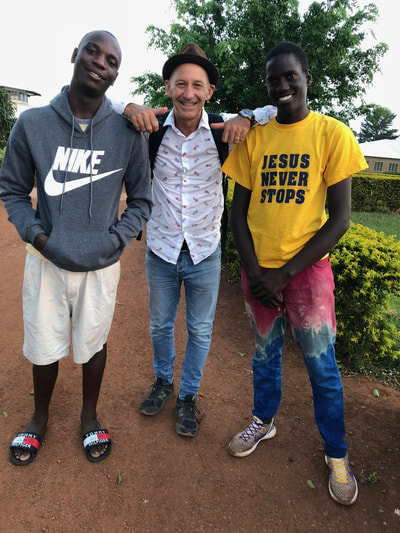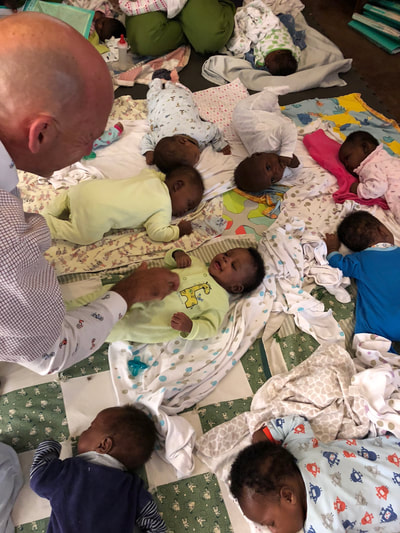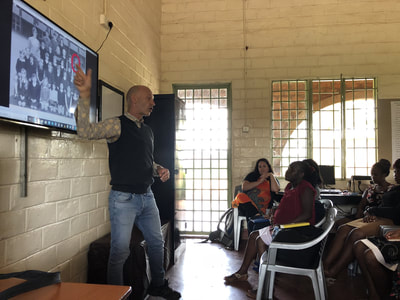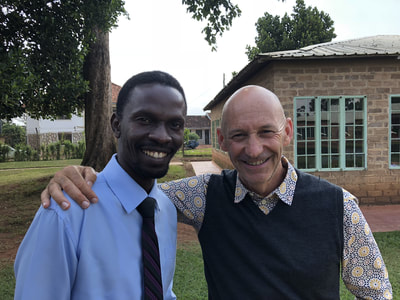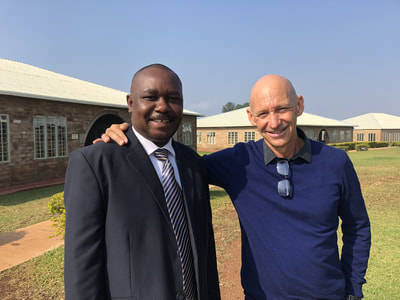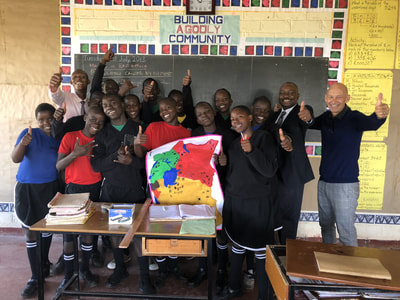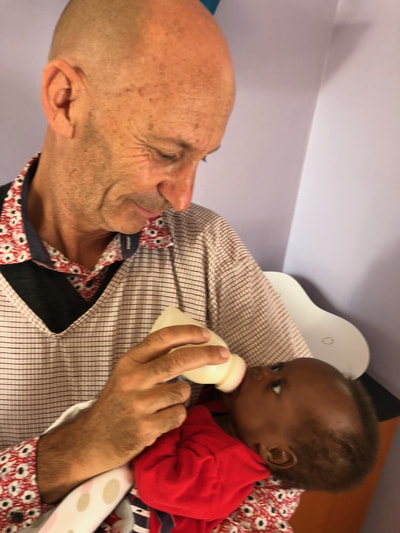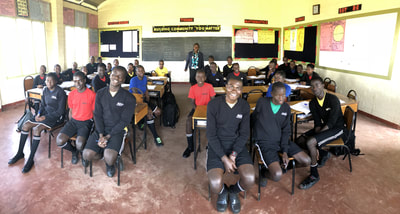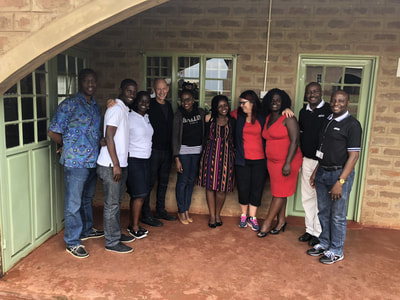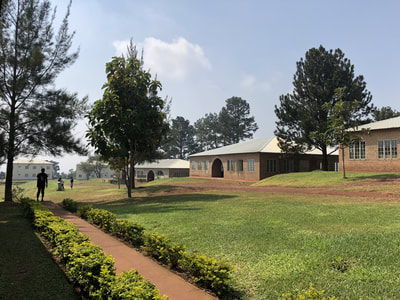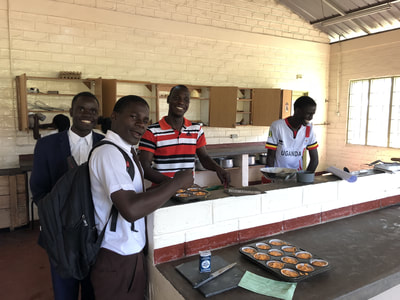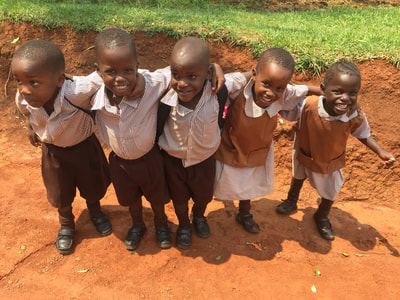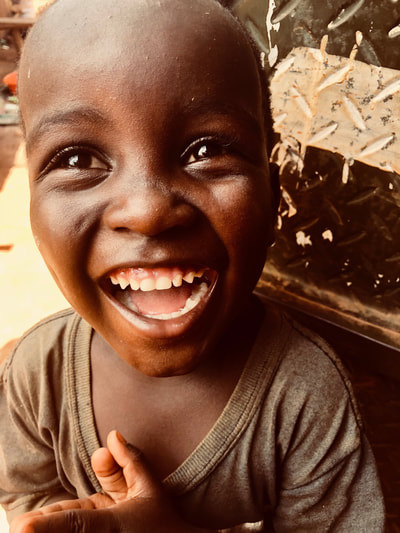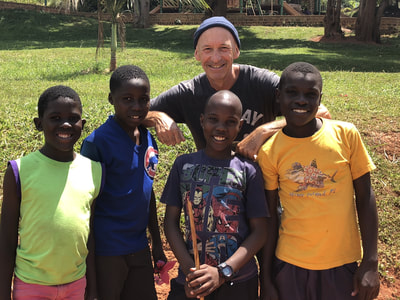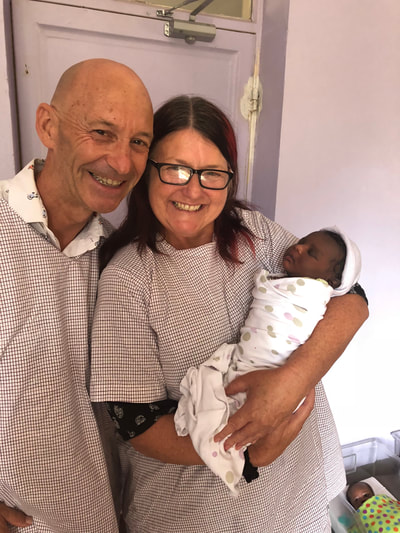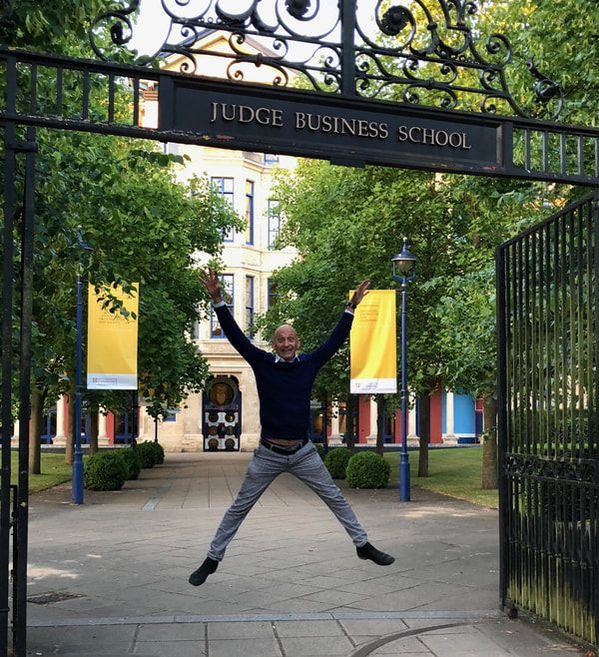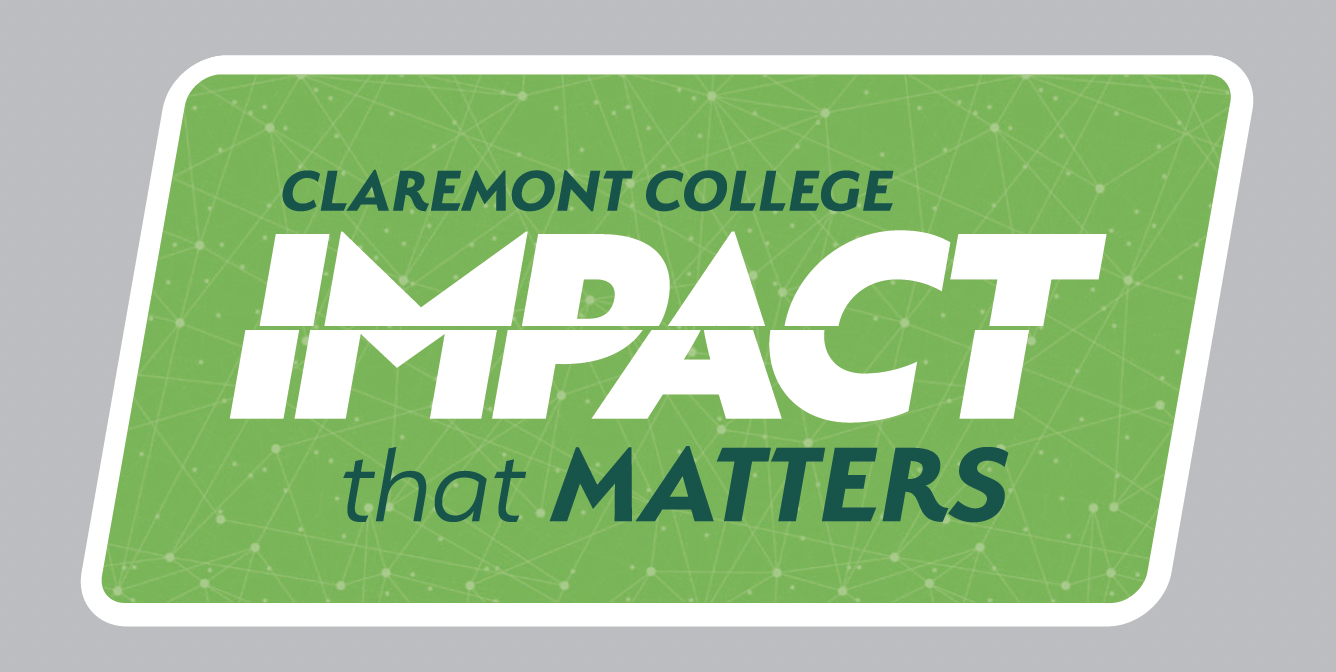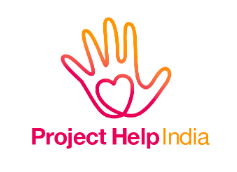|
What does the Lord require of you and me?
to act justly, to love mercy walk humbly with your God Micah 6:8
1 Comment
It was a privilege to spend close to three weeks at Watoto in Uganda. Watoto is a school with over 1000 students (K-12). These beautiful kids are mostly orphans, and each one has an incredible story of being rescued, loved and being given a life of hope and purpose.
https://www.watoto.com/ Working most evenings in 'Baby Watoto' feeding the newborns and playing with the toddlers before bedtime was both fun, and exhausting. Rowena and I had such a wonderful time - thank you Watoto for your love, warmth, generosity and kindness. You really looked after us and you treated us as family. You will remain in our hearts and prayers and we look forward to returning. My days were full and busy. Some of the things I did during my stay included;
 The chances are that when when things are rolling along well, when the momentum is gaining speed, just when you least expect it, something will occur that was not foreseen and totally unexpected. It may be a crisis, some bad news that rocks your community. Maybe the news is not as critical but it still comes unexpectedly, for example, a key staff member (the one with all the promising talent), popular with everyone, has received a promotion with a competing organisation. This is the stuff that is hard to stop thinking about when you’re trying to get to sleep. ...so as leader, are you prepared for this, and how do you respond? Those who you lead, need you to be able to cope and be in charge. If you are facing a significant crisis, understand that people go into shock - you have to respond to this situation and respond to people’s needs. People need to feel safe. Do you keep your calm and communicate safety and confidence? Be prepared. Did you have a Critical Incident Policy to help guide you personally, while you yourself, may be feeling numb and upset? Many years back, I had to respond to situation involving the murder of a parent of my school, and the kidnapping of the student. It was as horrific as you can ever imagine. We were all devastated. We cried together and I really was numb. My team was upset and I found it difficult to think clearly. What helped and got me through was our 'Critical Incident Plan and Procedures' which outlined the steps that we needed to take. While things were going crazy around me, I found confidence in following the checklist of steps and actions that we had devised within this policy. I was able to deliver strong and confident leadership despite feeling like I was out of my depth and ‘wetting my pants’ having to deal with something like this. God was good, as He always is, and I felt His strength and guidance. When a crisis occurs, have a meeting (this gives people confidence), you need clarity for who is responsible for what (categories of incidents) key roles, contacts, and an action plan. People like to have a task and responsibility so don’t underestimate how well they will do their job under pressure. Have just one person who is authorised to talk to the press (it will probably be you) - get the detail of the micro correct, or the press will eat you. Anticipate your social media response and get onto this. Five minutes to set up an action plan is going to set you and your team up for a good response to whatever you are facing, and ultimately ensure the best outcomes for whatever the crisis might be. Contact the external bodies who are there to help and never forget that an intentional, drop everything, quick arrow prayer, keeps you and your team connected with the One who you need the most when things are bad. He wants to do this with you and He promises to be by your side through it all. One of the keys to our leadership success is ‘expecting the unexpected’. It seems ironic but it’s actually possible to plan for this. Thanks @tompumford for the great photo I have just had the privilege of attending at Advanced Leadership Program at the Judge Business School, University of Cambridge (link). The experience was incredible and I cannot recall having ever learnt so much, and been challenged and stretched in my thinking in such an intense way. The course itself spanned 17 days, 130 hours of teaching, 40 speakers delivering 38 topics which included an expanse of topics. I have listed some of these topics to paint a picture of what some of the key areas that a contemporary leader needs to be aware of and considering;
The role of a leader is complex and multifaceted. People and communities need leaders and perhaps one of the greatest needs a community or organisation needs from its leader(s) is to deal with the unforeseen. Big change happens slowly and humans want safety. They need to feel safe and secure within their community of belonging. Change is disruption. Change is expected, but we don't necessarily know what to expect. The future is always determined by the unexpected. As a leader, when you think about the future, you must consider how is it going to be different? The quality of leadership is found in these things;
At Cambridge one of the speakers said that you also need to have “a sense of your timing.” In other words, a leader needs to understand that s/he is positioned ‘right here’ and ‘right now’ with the conviction that God has placed you where you are, with the people you do life and work with, for a purpose. They need you to be confidently doing your very best, seeking to be your very best, strong in the knowledge that God is with you in this – even with the change that is relentlessly knocking on your office door. 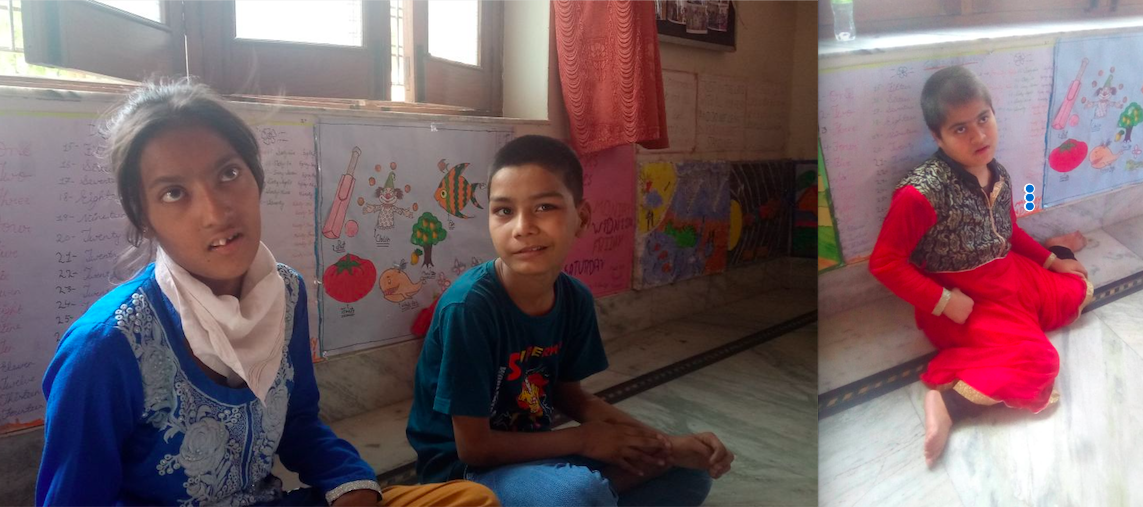 In my role as an educator I cannot stress enough my belief and conviction that when it comes to kids with special needs, we have been doing some things terribly wrong.
If a child can’t read at the pace of others, or if a child is struggling with their learning, perhaps they have a physical, behavioural or intellectual disability, what do we do? Generally, thinking that we can better cater for their needs, we remove them from their classroom and from their friends, and teach them somewhere else. The stigma can be painful. At times this is fair enough because maybe there are better resources, a better or more specific program with access to skilled, specialist staff. However, most of the time we have got this so very wrong. Keeping students who have disabilities with their friends, peers and other learners is what they need. Inclusion is not discriminatory and it is equitable. We must rethink school and classroom design to cater for the vast array of needs that all students bring. To take things further, in India where we are working, it’s wonderful just to get them out of their house. Here's what I mean; A couple of years ago, I visited one of our small school projects in Kotdwara. At a community meeting I asked; “Where are the kids with special needs?” “What do you mean?” was the reply. “Well, where are the kids who might have a disability” I asked. “A disability? What do you mean? “Like a child who is blind, or a boy or girl who can’t learn like the other children” “Oh yes, we have lots of kids like that”, was the reply. “Well where are they?” I asked. “They are at home” “Why aren’t they here at school?” “They can’t go to school because they have a disability” was the standard reply. The conversation would have gone in circles until I realised that the common place mindset was that school and a children with a disability were seen as being mutually exclusive. I have since learnt that many children with disabilities in India (and also in other third world communities) live at home for their entire life. These children whose families live in poverty really are the “poorest of the poor”. These kids are never educated because their parents have no money and no one has have ever offered them a vision for how a school might cater for their needs, and how learning might actually change the course and trajectory of their life. So often these parents live in shame for having such a child, rather than being helped, equipped and supported in the challenges they face. To have a child with a disability is a significant liability. Last week I visited a remarkable place, the Gem Foundation in Kampala. Rowena and I were incredibly inspired. Children with ‘significant’ needs were loved, cared for, and given a quality education, not to mention meeting their developmental needs through individual health plans. Kids with Downs Syndrome for example, were seen as being valuable and important individuals. http://thegemfoundation.com I’m proud that in June we started a small project at Kotdwara. Naomi, who is one of our amazing teachers holds a class 3 mornings a week, for three children, each with a disability. These kids are from families who live in terrible poverty. Their parents would otherwise never imagine that their children could be educated in any way - let alone loved, valued and embraced by others. The children are given a healthy snack, they play with toys that they never see at home, have stories read to them, and an educational program is being implemented as we determine how we can best meet their individual needs. It’s early days and we love these remarkable kids as if they were our own. Each has their own beautiful personality and we are enjoying getting to know them better. They make our lives brighter and richer simply by knowing and doing life with them. Rabiya is from a Muslim family. He was impacted by neonatal drug taking, was born premature and although “he understands everything” (not sure what this means) he cannot speak or walk. He loves coming to our centre where he is learning to read. His smile lights up the place when he arrives. Farah is 18 years old. Both of her parents have polio and they cannot walk. Farah loves coming to our centre and she cries when she has to go home. Ayush is ten years old and he is from a Hindu family. He has never been to school. When at age 5, his parents realised that he had a mental disability, relatives advised his parents to “throw him out or send him to an orphanage”. Ayush’s mother was determined to keep him and now she is finally receiving some help and support from Project Help. So what’s the vision? Perhaps you can help? We would love of course, to receive your generous donation but even more valuable than this, we are reaching out to ask for specialist help and guidance. Some of the questions we are asking include;
The need is great, our resource is minimal. Our love is huge and we are confident that we have friends and networks who would like to share their love too. Our starting point is to gather some like-minded, passionate educators or people involved in helping children with disabilities to meet with me to get things rolling, and to help me get a clearer sense of direction. Perhaps you can’t help, but maybe you know someone who might be interested, if so please forward this email to them. As with all things we have experienced with Project Help, we know this to be true;
Thanks as always, Love Doug :-) |
claremont.nsw.edu.auarchives
June 2024
categories |
